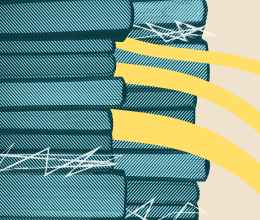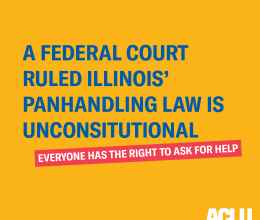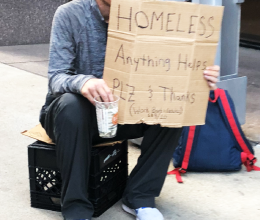
By Kevin Fee, Senior Special Litigation Counsel
Just a few years ago “book banning” was a topic most people read about in history books, not newspapers. No more. The last two years have seen book bans come roaring back into the public consciousness, as groups of right-wing extremists have become increasingly active and organized in their attempts to control the ideas and perspectives available to local communities through their schools, libraries, and other public spaces. These groups have mobilized a loud minority of activists to hijack public meetings seeking to ban books – or school lessons, or events – promoting messages with which they disagree. Unsurprisingly, their targets were usually stories amplifying the voices of LGBTQ people, racial minorities, and other marginalized groups.
Some of these efforts have gone viral, and more than a few of these public commenters have become “YouTube famous” with recorded speeches and podium histrionics that are comically over-the-top. But there is nothing funny about the censorious and exclusionary undercurrent that that propels this movement. And in some ways these very public, local censorship campaigns that provide fodder for social media shares are the least dangerous, as they are easy to dismiss, or at least easy to spot and counteract through the voices of other community members who value a robust marketplace of ideas. Unfortunately, efforts to censor and control the public conversation are increasingly focused outside the sunlight of public debate, or worse yet, seek to preempt public discourse entirely by undermining or eliminating the spaces in which it takes place.
For example, there is a growing phenomenon of “quiet” book bans that take place outside the rancorous but democratic arena of public board meetings. Individual parents or other community members often lobby librarians and school administrators directly for the removal of books or other content, bypassing the community at large. We have received reports of parents simply checking out copies of library books they find objectionable, thus advancing their agenda without any formal process or public review. The drivers of book bans do not have to be numerous to have an impact: indeed, a recent Washington Post analysis found that just 1 people were behind 60% of all book bans nationwide. The quiet pressure applied by this small group also has an undeniable chilling effect, leading to self-censorship by librarians, administrators, and educators driven by misguided attempts to avoid controversy or soothe dissension in their increasingly divided communities.
Moving from the “micro” to the “macro,” there is a growing movement to weaken the very public spaces that make up our cherished “public square,” marking a disturbing shift from policing public speech to simply blocking it altogether. In Missouri, the state legislature introduced a resolution to completely defund the State’s public library system to retaliate against the Missouri Library Association and Missouri Association of School Librarians for joining the ACLU in a lawsuit challenging a state statute banning certain material from library shelves. The effort was ultimately unsuccessful, but local communities have faced similar defunding library efforts after pro-censorship forces ignited controversy over library book content.
As the attack on our right to read and learn evolves, it becomes ever more important for community members to stay involved and engaged. While organizations like the ACLU are on active lookout for attempts to undermine our First Amendment rights, threats are often nearly impossible to identify without the help of supporters with ears close to the ground in their communities. If you hear that town councils, school boards, library boards, school administrators, or other public officials are facing demands to narrow the range of messages available to your community – whether through book bans, event cancellations, or otherwise – please let us know. But more importantly, please show up to public meetings and make your voice heard. One inspiring takeaway from the recent book-ban era has been that, given time, the voices of freedom always gather in strength to outnumber the voices of exclusion in control. This is usually clear by the second or third meeting, and when public officials hear from the entire community they tend to do the right thing. But this can only happen when we show up, speak out, and let them know where the people really stand.


